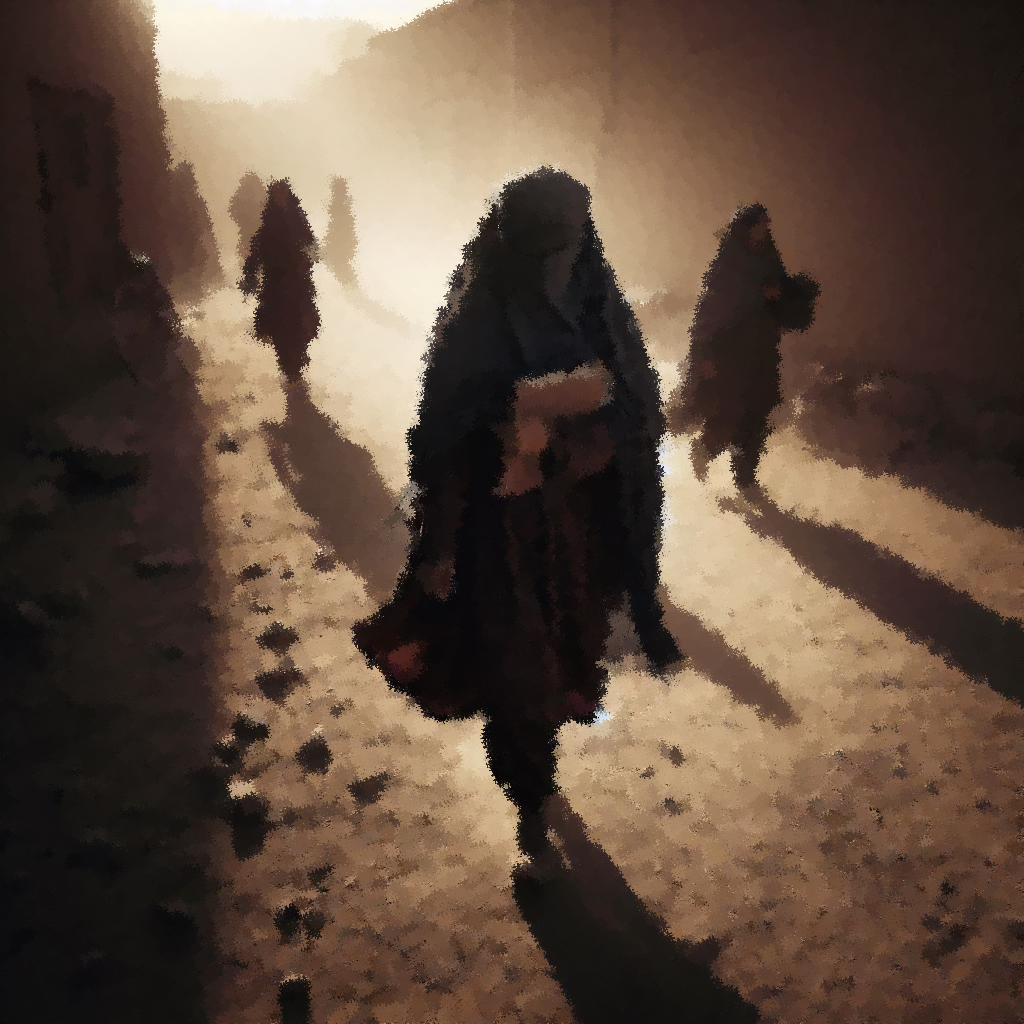Women’s History Month: Afghan Girls Struggle for Education, Part 2

To commemorate Women’s History Month, the Afghanistan Policy Lab at the Princeton School of Public and International Affairs has conducted interviews with eight courageous Afghan school-age girls in Afghansitan. These courageous individuals have been prevented from attending secondary school since the Taliban seized power in 2021. Their stories shed light on the stark reality faced by girls who once enjoyed fundamental freedoms and rights, such as the ability to attend school, participate in recreational activities, socialize with friends outside of their homes, engage in sports, and freely walk outside of their homes without a mahram (male chaperone.) Following the Taliban's takeover, unfortunately they have been deprived of these fundamental liberties due to the imposition of Taliban’s harsh restrictions. Despite the challenges, these resilient girls refuse to surrender their dreams and aspirations, and each of their stories is a testament to their resilience and courage. Online tools to resist and fight back, as one of them bravely stated: “The Taliban have a strong fear of educated women because they know if a woman gets education, she won’t raise a Talib.” Empowering Afghan women through education stands as the antidote to the Taliban's oppressive regime.
Fatima’s Story

“I tell my friends to read books, because it helped me when I felt extremely helpless, and
I was sure that it would help them to get out of that state of mind, too…” Fatima
Fatima, nineteen years old, enrolled in a comprehensive educational program to improve her English and learn how to apply for scholarships to attend higher education abroad. At noon on August 15, 2021, as she excitedly prepared to start the first day of classes, her mother called and urged her to stay home as the Taliban had entered the city.
“My mother was outside. I called my mother to tell her that I was going to the center. My mother said in a tone that she had never spoken to me with before: ‘You are not going anywhere!’ She said that the Taliban had taken over the city.”
All the stories that Fatima had heard on television or through her parents about the brutal conduct of the Taliban two decades prior came to life in her mind: the Taliban engaging in suicide attacks, stoning men and women, flogging women in public view on the street, flogging men for having short beards. “I felt like I had fallen into a deep hole. No matter how much I screamed and asked for help, no one would respond. It was such a feeling of helplessness.”
For the first week after the Taliban’s arrival, Fatima and her sisters did not dare to go on the street. “Those first seven days passed like seven years for me. I thought that our life was over and that no good was going to come. I thought the Taliban would return and do something to us like they did to our mothers before 2001 because they hated women so much. God, why are we sinners from their point of view? Why?”
Fatima’s older sister secured an evacuation for the family, but as they made their way to the airport on August 26, 2021, a large explosion at the entrance killed 13 American marines, while at least 60 Afghans were killed and dozens more injured. The airfield closed on August 31, 2021, and the last American soldiers left Afghanistan.
With the departure of the American forces, Fatima lost hope. As the Taliban implemented increasingly stricter policies, she suffered severe depression. “I cried at night and wrote during the day. It was a level of depression I had never experienced before.” Fatima’s family played a critical role in her recovery. When Fatima’s depression was at its peak, her mother took her to a bookstore. The bookseller looked surprised when he saw two women enter to buy books. As Fatima recalled, the bookseller told them that it was surprising, in a situation where people were wondering how to save lives, two women were looking for books.
These books provided a critical source of motivation for Fatima. As her mental health improved, she enrolled in several online learning programs. And with the help of WhatsApp, she gathered a group of her friends virtually to share the stories and lessons that helped her improve her mental state. “I used to tell my friends to read books, because it had helped me during my helpless days, and I was sure that it would help them to get out of that state of mind, too. Our WhatsApp group was not only a place for telling stories and heartaches but also an educational platform." Books and the Internet soon became a place of refuge for Fatima.
The work of people who provided Fatima and thousands of other girls with opportunities to learn online inspired her to begin a book reading competition to encourage her peers to read. She sent a proposal to individuals abroad and received funding, but educational centers in Afghanistan were unwilling to host the competition because education for girls was prohibited by the Taliban. Constrained by the restrictions of the Taliban, Fatima successfully launched the competition for 100 boys.
On the day of awarding the winners of the competition, she took the risk and went to give a speech to the participants. All were boys. She got a lump in her throat when she saw no girl. After the program was over, she felt a sense of happiness that she had never experienced before. As soon as she got out of the classroom where the competition was held, she called her mother and let her know that she made it as her mother was worried about the risk her daughter was taking to go to a male gathering.”
When Fatima reviews her personal journals, she realizes that she has come out of a deep hole that she once thought confined her. Having recently been admitted to a university in Italy, Fatima stands in a place where the future seems both promising and possible, which has been gained through constant fight and not giving up on her dreams no matter how challenging they are.
Toba’s Story

“…In reading Malala's book, I realized how resilient a girl can be, and naturally,
it encourages me and gives me hope to continue fighting until the end.” – Toba
Until tenth grade, Toba had proven herself as a hardworking student with excellent grades. She devoted her time and energy to one day achieve her dream of earning a top score on the nationwide public university entrance exam, inspired by Salgy and Shamsia, two girls who received the highest scores in 2020 and 2021, respectively.
This dream was destroyed when the Taliban took power and banned girls’ education after sixth grade, barring Toba from graduating and pursuing her favorite field of study, political science, with the hope of becoming a politician and supporting the people of Afghanistan.
After the takeover, Toba was teaching English in a private educational center. That abruptly ended two months ago when the Taliban started arresting girls on the streets in Kabul for wearing “bad hijabs.” Toba now rarely leaves her house out of fear of being arrested and the suffering it would cause her family. However, she uses an online platform for her teaching and learning. Each morning when she wakes up, she performs household chores before sewing handicrafts with her mother to sell them to cover the expenses of her online courses and study materials. Now, these online courses are the only opportunity that she has to interact with peers and classmates and reduce her stress and anxiety. "The only thing that encourages us to continue this struggle is the existence of these phones and computers and the Internet. If this space is not there, absolute darkness will rule in our lives,” she said.
For Toba, self-help and psychology books act as a driving force that motivates her through difficult situations. “Becoming”, written by Michelle Obama is the last book Toba read: “Most of the books I read are motivational. These books tell the stories of globally known women who have gone through extremely difficult situations. Notably, in reading Malala's book, I realized how resilient a girl can be, and naturally, it encourages me and gives me hope to continue fighting until the end.”
Almost all girls in Afghanistan, including many of Toba's classmates, are deprived of the opportunities that Toba experiences. Only girls with access to and knowledge of how to use smartphones, computers, and the Internet can participate in online education. Girls without these opportunities are forced to give up and unwillingly agree to early marriages.
Toba is one of the girls who managed to get a scholarship for virtual learning. She has the support of her family. However, Tuba wants to go and experience the university in the conventional way, which is in-person. As he she hopes that one day she might be able to leave Afghanistan and live in an environment where she has her freedom, she currently struggles for a life not entirely shattered by darkness and misery. Continuing to seek educational opportunities, preferably outside the country, she strives to turn her dream of becoming a female politician into reality.
